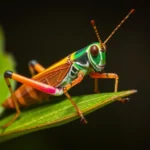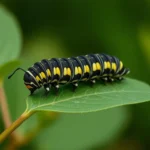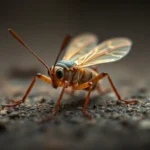The Enigmatic Squash Bee: Symbolism and Spiritual Insights
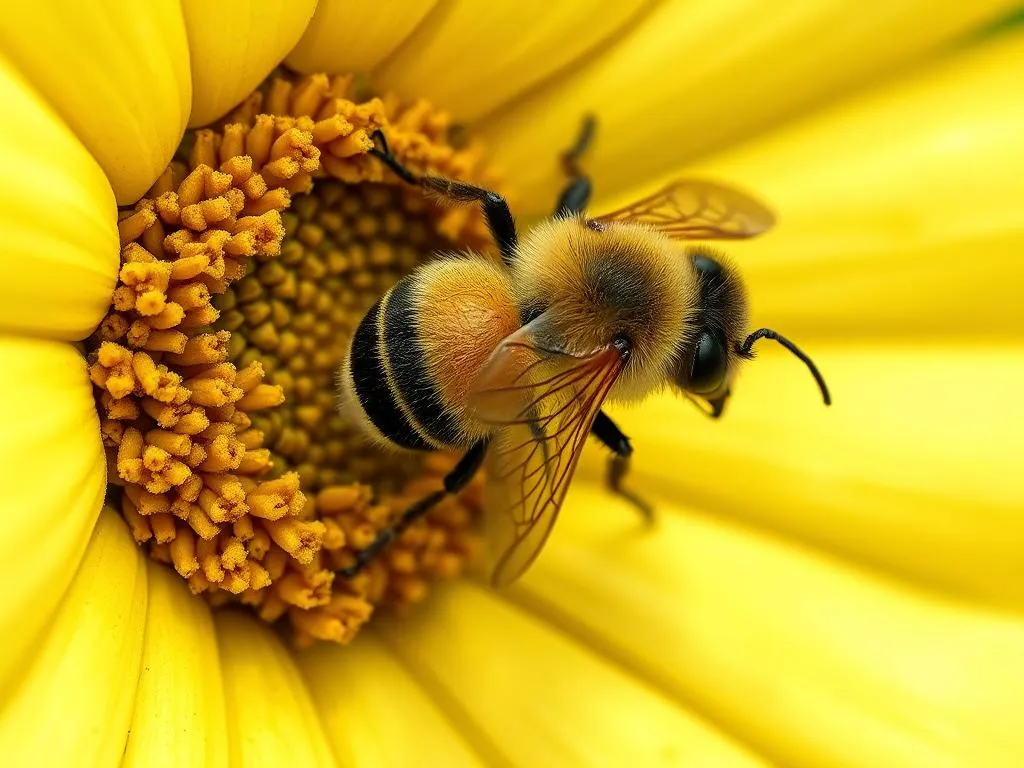
Disclaimer: Some images on this website are AI-generated artworks and may not accurately represent real animals.
Understanding the Squash Bee
Biology and Habitat
The squash bee, predominantly belonging to the genera Peponapis and Xenoglossa, is a fascinating species primarily found in North America. These bees are particularly important for their role in pollinating squash, pumpkin, and gourd plants. Unlike many other bees that are generalists and visit a wide variety of flowers, squash bees are specialists, honing in on plants from the Cucurbitaceae family.
Squash bees are solitary creatures, meaning they do not form the large social colonies typical of honeybees or bumblebees. Instead, they establish individual nests in the ground, often in sandy or loose soils, where they create tunnels to house their eggs and store food. Their unique nesting habits and reliance on specific host plants make them essential allies in agricultural ecosystems, ensuring the reproduction of crops that many communities depend on.
Behavioral Traits
The behavior of squash bees is as intriguing as their biology. They are most active during the early morning hours, taking advantage of the cool temperatures to forage for nectar and pollen. Their nesting habits are quite fascinating; female squash bees typically dig underground nests and line them with pollen balls, which serve as food for their larvae.
The social structure of squash bees is primarily solitary, though certain species may display some communal behaviors. This limited social interaction emphasizes the importance of individual contributions to the ecosystem. By pollinating flowers, squash bees play a crucial role in supporting biodiversity and ensuring the health of agricultural systems. Their decline could significantly impact the availability of squash and other crops, highlighting their agricultural significance.
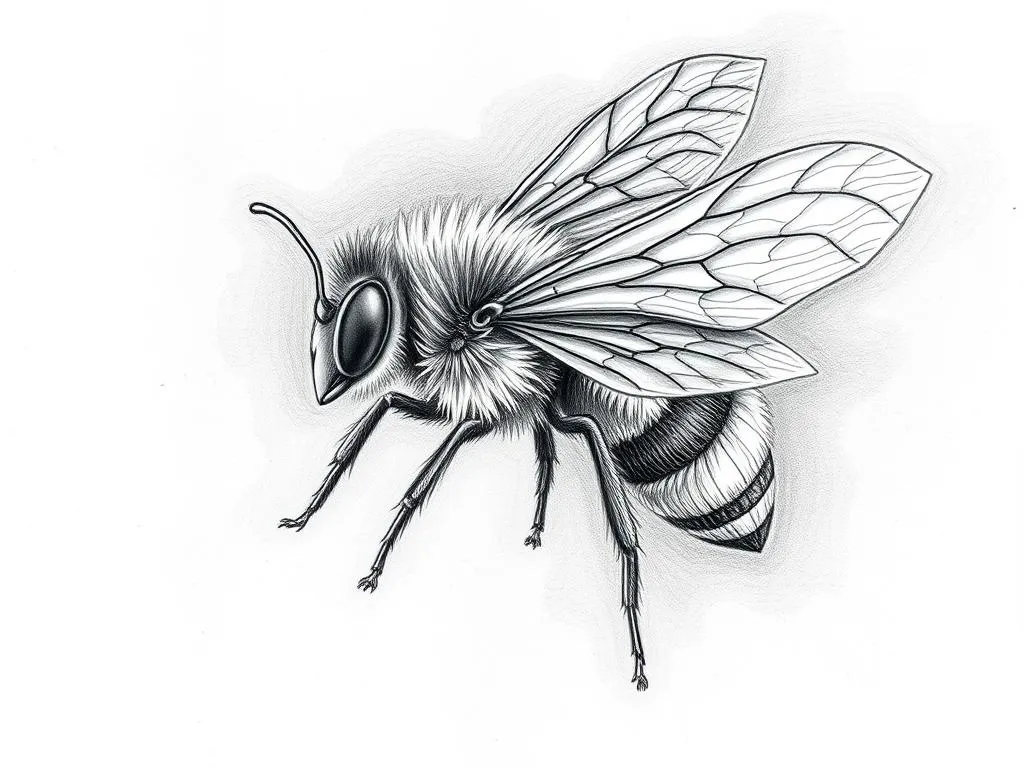
Symbolism & Spiritual Meaning
Connection to Growth and Fertility
In various cultures, bees symbolize fertility and productivity. Squash bees, in particular, embody these themes through their essential role in pollination. Squash bee symbolism is deeply intertwined with agricultural abundance, representing the cycles of planting, growth, and harvest. These bees serve as reminders of the importance of nurturing the earth and the fruits it provides.
Their direct association with squash and pumpkin plants makes squash bees icons of growth. When one thinks of these industrious insects, images of lush gardens and bountiful harvests come to mind. The symbolism of the squash bee encourages individuals to foster their personal gardens, whether literal or metaphorical, nurturing ideas, relationships, and ambitions that can flourish and yield fruitful results.
Community and Cooperation
Though solitary by nature, the squash bee’s life and work reflect themes of community and cooperation. In their quest for survival, these bees exemplify the importance of teamwork, as they rely on the support of their specific host plants and the larger ecosystem. The squash bee’s symbolism extends to human relationships, serving as a powerful reminder of interdependence.
In a world where individualism often dominates, squash bees teach us valuable lessons about collaboration. Just as these bees rely on flowering plants for sustenance, we too must recognize the value of working together in our communities. The cooperative spirit embodied by squash bees can inspire us to foster connections, share resources, and support one another in our collective endeavors.
Transformation and Change
The life cycle of the squash bee is marked by transformation, aligning closely with the idea of personal growth and change. Emerging from their underground nests each spring, squash bees undergo a metamorphosis that mirrors the seasonal changes we experience in our own lives. This cyclical nature serves as a potent symbol of renewal and the constant evolution inherent in existence.
The seasonal patterns of squash bees reflect the broader themes of transformation. As these bees pollinate flowers, they contribute to the cycle of life, ensuring that new generations of plants can thrive. Their presence reminds us that just as nature undergoes change, so too must we embrace the inevitable transformations life presents.
Squash Bees in Dreams
Dreaming of Squash Bees
Dreams featuring squash bees can carry profound messages related to fertility and creativity. In the realm of dream interpretation, the presence of these bees often symbolizes the potential for new beginnings and the nurturing of latent ideas. When squash bees appear in dreams, it may signify the dreamer’s readiness to cultivate their creative endeavors, whether that involves starting a new project, nurturing relationships, or even embarking on a personal journey of self-discovery.
Interpretation Table
| Symbolism | Meaning |
|---|---|
| Squash Bees | Fertility and creativity |
| Pollination | Nurturing potential and new beginnings |
| Nesting | Establishing roots and stability |
| Transformation | Embracing change and personal growth |
Warning Signs
While squash bees typically symbolize positive attributes, their appearance in dreams can also serve as a warning. If squash bees appear in a negative context or are associated with chaos, it may indicate feelings of imbalance or neglect in one’s life. This could manifest as a warning to pay attention to neglected areas, whether in personal relationships, work, or self-care.
Just as squash bees thrive in healthy environments, the dream might suggest that the dreamer needs to assess their surroundings and make necessary adjustments. This duality in the symbolism of squash bees underscores the importance of balance, reminding us that growth and abundance come hand in hand with responsibility.
Modern Interpretations
Cultural Significance
Throughout history, squash bees have held significant places in various cultural contexts. Indigenous traditions often recognize the role of these bees in agricultural practices, celebrating their contributions to the cycle of life. Squash bees are frequently depicted in folklore, embodying the connection between nature and sustenance.
In contemporary environmental discussions, squash bees have become symbols of ecological balance and biodiversity. Their decline in numbers is a stark reminder of the fragility of ecosystems and the urgent need for conservation efforts. As communities rally around environmental movements, squash bees serve as poignant reminders of the interconnectedness of all living things.
Artistic Representations
Squash bees have also found their way into various art forms, from paintings to poetry. Artists often capture their delicate beauty and industrious nature, using them to symbolize themes of growth, community, and transformation. In this way, squash bees transcend their biological existence, becoming powerful symbols of resilience and creativity.
These artistic representations further cement the squash bee symbolism in cultural consciousness, encouraging people to reflect on the deeper meanings these insects convey. Through art, the lessons of the squash bee can inspire individuals to embrace nature’s rhythms and appreciate the interconnectedness of life.
Conservation and Awareness
As the plight of squash bees becomes more pronounced, awareness efforts are crucial. Their declining populations highlight the broader issues of habitat loss, pesticide use, and climate change. By understanding the importance of squash bees in ecosystems, society can learn to value and protect these essential pollinators.
Conservation movements that focus on preserving habitats for squash bees and other pollinators can foster a deeper appreciation for biodiversity. Engaging in practices such as planting native flowers, reducing pesticide use, and creating bee-friendly gardens can help protect these vital species and their ecosystems.
Key Takeaways
- The squash bee’s symbolism is closely linked to themes of growth, fertility, and agricultural abundance.
- Squash bees teach valuable lessons about community, cooperation, and the importance of interdependence in relationships.
- Their life cycle symbolizes transformation and personal growth, encouraging acceptance of change.
- In dreams, squash bees can represent both nurturing potential and warnings about neglect or imbalance.
- Cultural significance and artistic representations of squash bees highlight their role in environmental awareness and conservation efforts.
Conclusion
In both nature and human symbolism, squash bees hold a unique place. Their contributions to agriculture, their lessons on cooperation, and their embodiment of transformation serve as powerful reminders of the interconnectedness of life. As we navigate our daily lives, we can draw inspiration from the squash bee’s industriousness and resilience. By embracing the lessons they teach about growth, community, and environmental stewardship, we can foster a deeper connection with the natural world and ensure the protection of these vital pollinators for generations to come.
